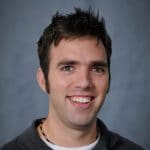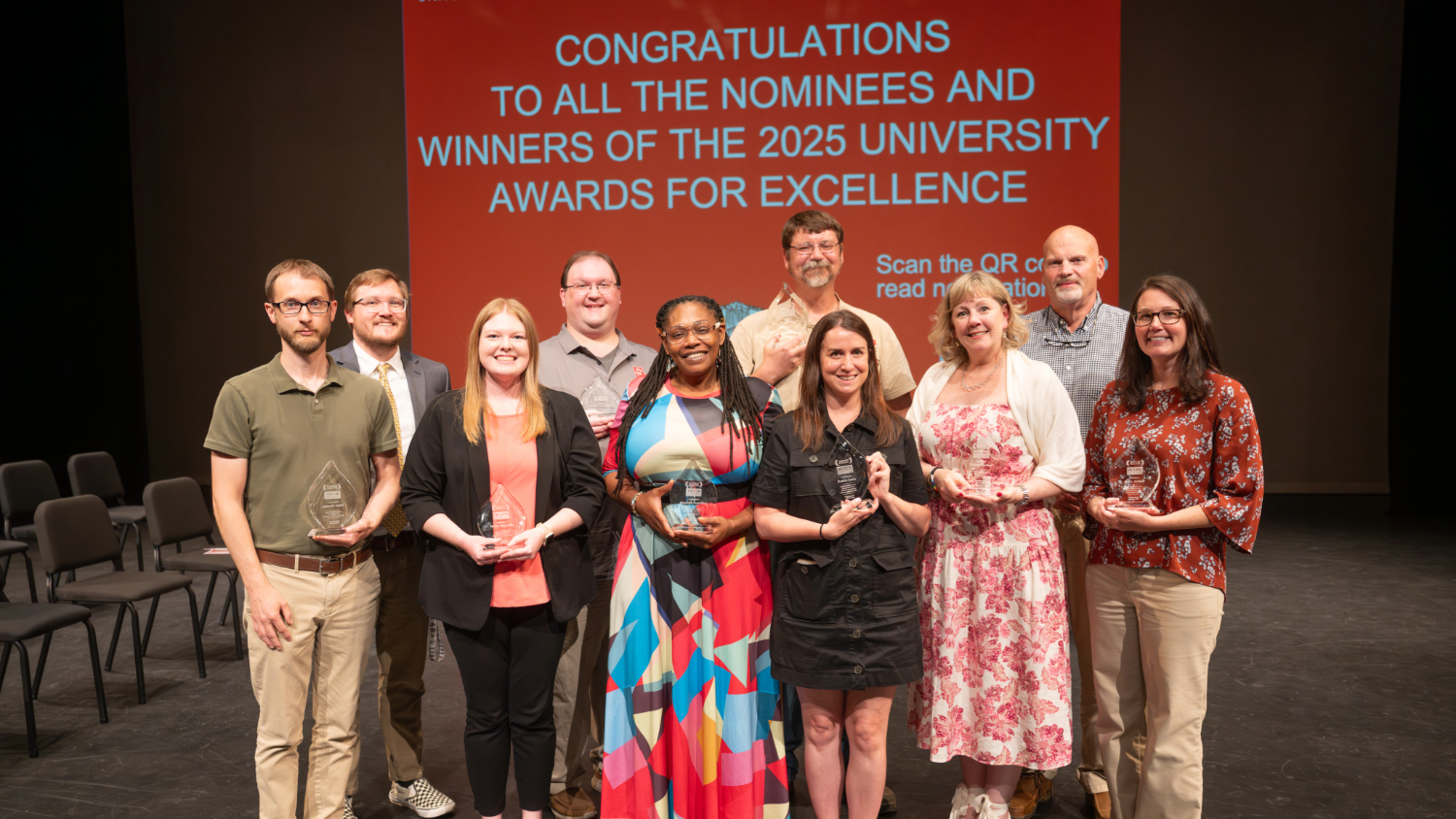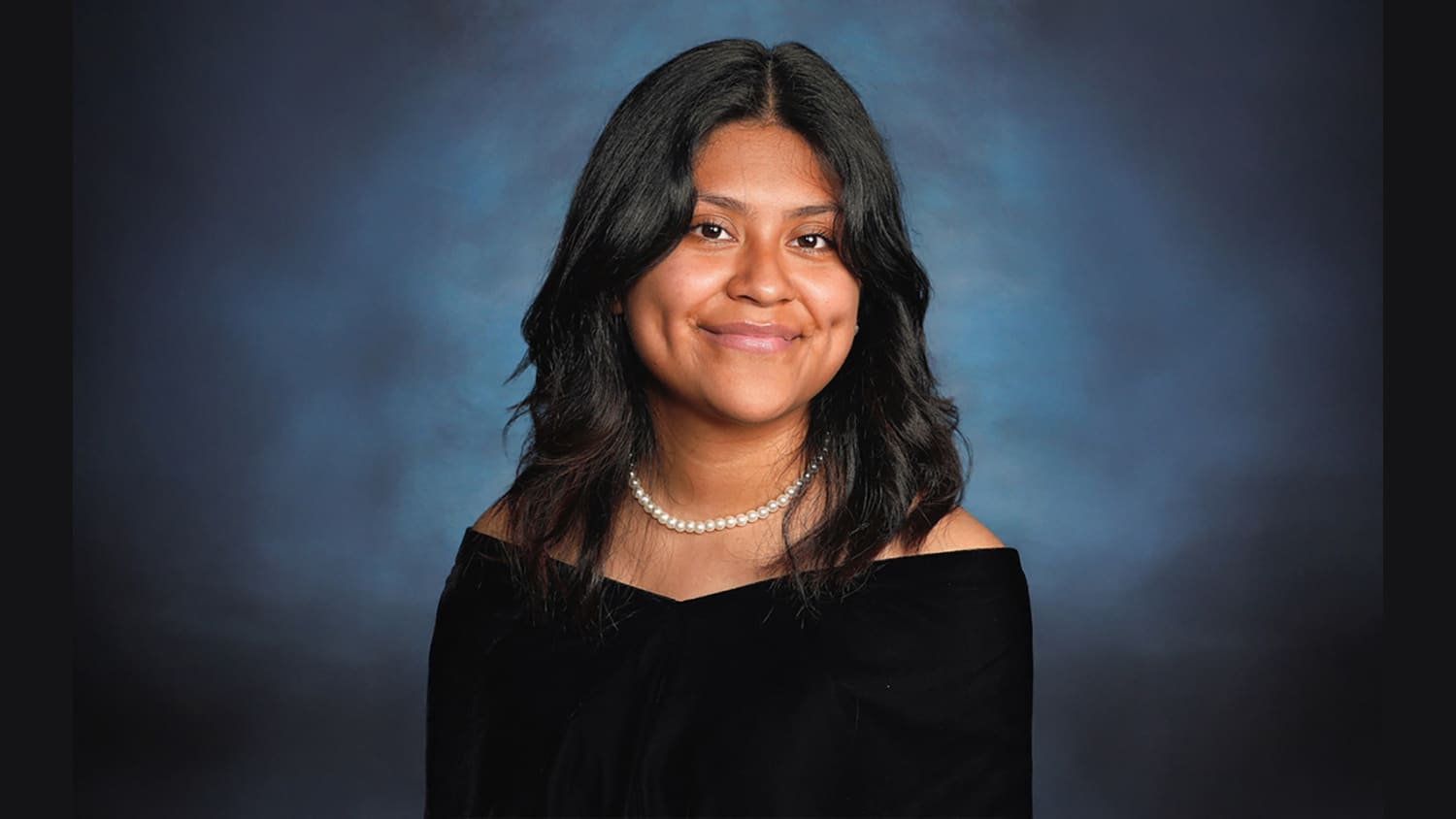Four Sciences Faculty Named University Faculty Scholars

Four faculty members in the College of Sciences have been named University Faculty Scholars, a top academic honor at NC State. The Sciences faculty were among 22 recipients from across the university who were announced today by Chancellor Randy Woodson.
Woodson established the University Faculty Scholars program in 2012 to recognize and reward emerging academic leaders on the NC State faculty. Each recipient carries the University Faculty Scholar title for five years and receives a $10,000 annual supplement that may be used for supplemental salary and benefits or programmatic support.
Those eligible for awards are assistant professors who have been reappointed for a second term; associate professors; and full professors within the first three years of appointment at that rank. Nominees were evaluated based on evidence of their significant achievements in scholarship, teaching and/or service appropriate to their rank and discipline. Faculty members are nominated by their colleges.
College of Sciences Awardees
Eric Laber is an assistant professor in the Department of Statistics. His expertise is in statistical modeling and inference for complex and non-standard settings including sequential clinical trials, large observational datasets and streaming data. He is a key player in NC State’s work in personalized medicine, which seeks to deliver the right treatment for the right patient at the right time.
 Carolyn Mattingly is an associate professor in the Department of Biological Sciences. Her lab uses bioinformatics and comparative genomics approaches to understand the complex interactions between our environment and human health. She also leads the Comparative Toxicogenomics Database, which links research about chemicals genes and diseases to better predict how chemicals will affect our health.
Carolyn Mattingly is an associate professor in the Department of Biological Sciences. Her lab uses bioinformatics and comparative genomics approaches to understand the complex interactions between our environment and human health. She also leads the Comparative Toxicogenomics Database, which links research about chemicals genes and diseases to better predict how chemicals will affect our health.
 Leslie Sombers is an associate professor in the Department of Chemistry. Sombers’ research focuses on monitoring molecules in living brain tissue. Her unique approach to making complex biological measurements in living animals, which uses electrochemical techniques, has allowed her to make big advances neuroscience that could one day open up a host of new treatments for diseases like Parkinson’s or diabetes.
Leslie Sombers is an associate professor in the Department of Chemistry. Sombers’ research focuses on monitoring molecules in living brain tissue. Her unique approach to making complex biological measurements in living animals, which uses electrochemical techniques, has allowed her to make big advances neuroscience that could one day open up a host of new treatments for diseases like Parkinson’s or diabetes.
 Gavin Williams is an associate professor in the Department of Chemistry. Williams uses bacteria like E. coli as factories to make molecules that can be used as anti-cancer, anti-microbial and anti-viral drugs. By piggybacking on nature, Williams and his team can quickly and inexpensively create huge numbers of different molecules that they can test to find out which are the most effective against the diseases they want to treat.
Gavin Williams is an associate professor in the Department of Chemistry. Williams uses bacteria like E. coli as factories to make molecules that can be used as anti-cancer, anti-microbial and anti-viral drugs. By piggybacking on nature, Williams and his team can quickly and inexpensively create huge numbers of different molecules that they can test to find out which are the most effective against the diseases they want to treat.



